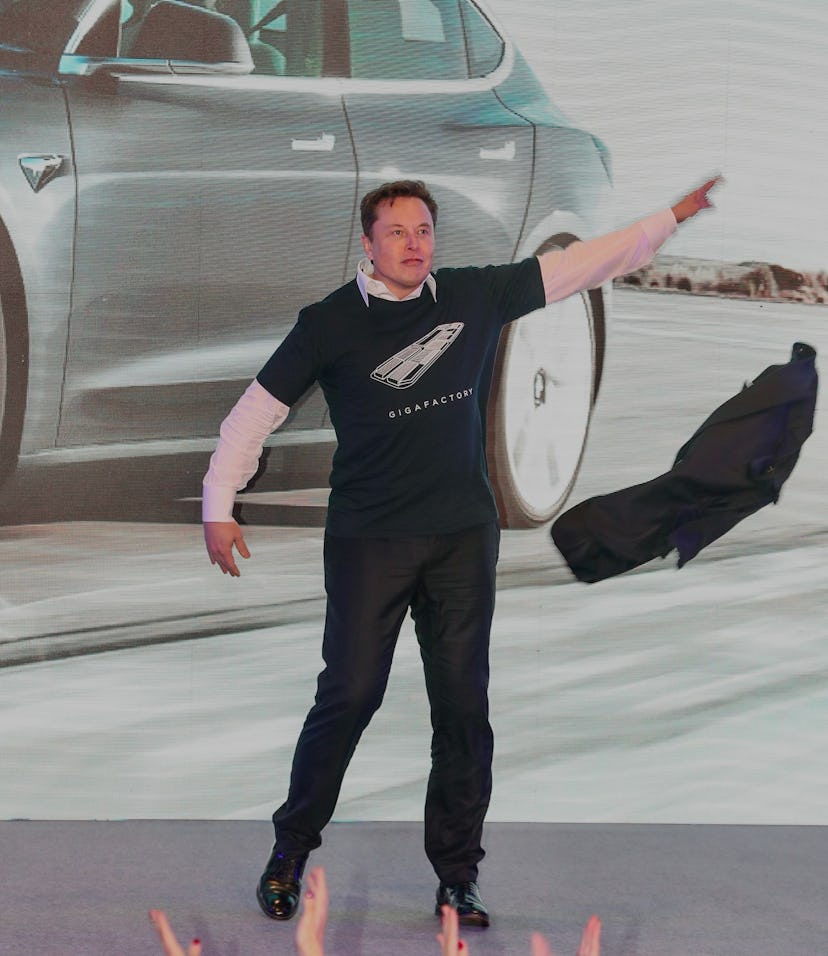Electric Opinion
Tesla's 'Anti-Handbook Handbook' isn't unhinged, it's humanizing
“Treat everyone like you want to be treated” and other mantras corporate America has forgotten.

In recent days, a four-page handbook for newcomers to Tesla has emerged. Business Insider got hold of it and published a matter-of-fact look at it. Other outlets have decided to deride it for being a manifestation of the worst of Elon Musk’s — granted, problematic — public persona. But I’m here to tell you it’s a breath of fresh air in a land where some people still think a $15 minimum wage constitutes wanton largesse, and the gig economy is the sold as the embodiment of the American Dream rather than the poster child for its abject failure.
Loud and proud — “We’re Tesla. We’re changing the world. We’re willing to rethink everything,” the handbook says at the outset, setting the tone for what is at times a self-aggrandizing, preachy, and occasionally in-your-face document that reads more like a pep rally than an HR-approved initiation document. It’s brash and it’s cocksure, but isn’t that precisely the sort of company you’d want to work for? Isn't that the sort of grandstanding Apple used to get mocked for? And, well, we all know how that's turned out.
Moreover, the handbook is at pains to point out that while there’s an inescapable hierarchy at Tesla, employees are encouraged to sidestep it if it serves the greater good. “Anyone at Tesla can and should email or talk to anyone else according to what they think is the fastest way to solve a problem for the benefit of the whole company,” the guide says, before adding “[Y]ou can talk to anyone without anyone else’s permission.”
Is this all idealism and lip-service masquerading as empowerment? It might be. But by committing its ideals to print Tesla is at least trying to make its brand of corporate utopianism a reality. At the very least, it’s something a junior can later flash to HR should they get accused of going around their superiors when their superiors were in the wrong.
Don’t just scrape by, thrive — Conventional employee handbooks “tell you how poorly you can perform before you get shown the door,” according to Tesla’s guide. “That’s not us.” Instead, Tesla wants you to know that if you aren’t fully committed to Team Tesla, you’ll be shown the door.
If you can’t be relied on to “do the right things and act with integrity even when no one is looking” you’ll get the boot, too. If you’re looking to coast by doing the bare minimum, “you’ll be more successful elsewhere.” And while some people might take umbrage with the notion that “if you don’t call and don’t show up for work, you’re a jerk,” that sounds like jerkish behavior to me.
Tesla urges newbies to "behave like the sort of person you want as your co-worker," and to "[b]e the kind of person your team can rely on.” Do we really want to ridicule that, even if sounds like it's straight out of a self-help handbook?
Definitely dorky, but so be it — Look, there’s no denying calling it the “Anti-Handbook Handbook” is groan-worthy. But then, more often than not, so are Elon Musk’s jokes... and his music. That doesn’t change the fact that Tesla makes pretty amazing vehicles, and has forced other metal benders to move away from fossil fuels faster than they otherwise would have.
A decade ago Tesla seemed like a doomed pipedream. Today it’s moving delivery timelines forward, struggling to meet demand, its share price is skyrocketing and it’s upending an entire industry. I’m willing to forgive its chronic dorkiness in exchange.
“Tesla must be the kind of company where people look forward to coming to work in the morning,” the handbook concludes. “Life is too short for anything else.” If that isn’t the sort of sentiment corporate America could use more of, I don’t know what is. I’m willing to hate on a lot of things — Supreme Oreos and failing Razr phones, for instance — but I don’t think we should be hating on a company that’s genuinely trying to change the status quo trying to make its employees believe it’s only with their help that it can.